Cavies are very happy when they know foods is coming, especially if it is tasty or something they enjoy. In general, cavies like everything that grows from the ground.
They are herbivores and vegetarians, so you can imagine their joy from munching sweet and tasty fruits! Today the main topic is the dried apricot fruit. But, is it also a great thing for cavies?
Can guinea pigs eat dried apricots? Guinea pigs can technically eat dried apricots, but they should be avoided. This dried fruit is safe for the guinea pigs, but it has a high content of sugars, and sugars are not healthy for cavies (or most animals in fact).
It is always important to know what can be fed to cavies. Just because something is a fruit, it doesn’t mean it’s the perfect food for cavies. When the fruit is dried, it is much different than fresh fruit. So, let’s see the other interesting things about dried apricots.
Table of Content
Are Dried Apricots Good for Guinea Pigs? | Health Benefits
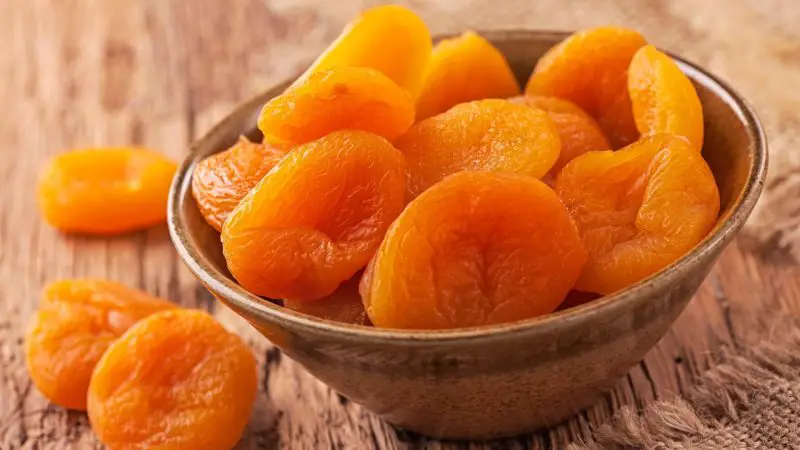
The good thing about dried apricots is that they have no fat and no cholesterol. This means they are not too fattening. But, more importantly, no cholesterol means healthy blood vessels and a healthy cardiovascular system.
The dried apricots are also a good source of energy. They have carbs in them, and carbs give instant energy. Also, they have proteins, a bit less than carbs, and proteins are the slow release of energy for the whole day ahead.
The good thing about dried apricots is that they contain fibers. The fibers are essential for good bowel movements and emptying of the bowels. In other words, for good and healthy digestion of consumed foods.
In this fruit, there is also vitamin A. This vitamin is among the strongest antioxidants out there. It protects from diseases and free radical damage. With vitamin A, everything is healthy, from skin, brain, heart, lungs, kidneys and eyesight.
The best benefit of dried apricots is that they have vitamin C. Dried apricots may be ‘forbidden’ sweet treats for cavies, but they do provide them with an essential vitamin. With vitamin C, the cavies are in literally perfect health. Without this vitamin, they get the dangerous scurvy.
With this fruit, the blood gets better too. If an organism suffers from anemia, this fruit could help a bit. There is iron in dried apricots which improves the quality of blood.
Lastly, there is potassium. This means less risk of hypertension or stroke. Also, healthier kidneys and healthy heart, plus a good balance of electrolytes.
Nutrition Facts of Dried Apricots
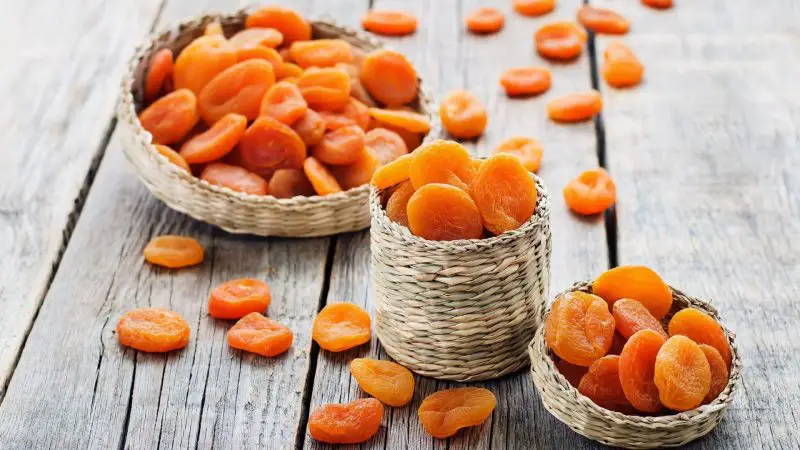
For a serving of 5 dried apricots, there is:
- 120 calories – It is highly caloric and gives lots of energy.
- 0 g fat – This is good for a healthy cardiovascular system and healthy weight.
- 0 mg cholesterol – No cholesterol is very healthy for the blood vessels and cardiovascular system.
- 10 mg sodium – The amount of salt could be a bit high, but this is not very risky now.
- 29 g carbs – High amount of carbs, but also they are fast source of energy for the day.
- 8 g protein – A low amount of protein, but enough for slow release of energy.
- 4 g fiber – For healthy and good digestion.
- 15 g sugars – Too high amount of sugar. This is too much even for humans.
- 2% vitamin A – A strong antioxidant. It removes inflammation, keeps skin, heart, lungs, brain, eyesight healthy. Immunity is improved as well.
- 2% vitamin C – The best thing for cavies, an essential vitamin for health.
- 40 mg calcium – High amount of calcium. This is beneficial for strong bones, but for cavies, it will make urinary problems.
- 6% iron – For healthy blood.
- 2 mg potassium – Prevention from stroke, keeping kidneys and heart healthy, and for good balance of electrolytes.
Are Dried Apricots Bad for Guinea Pigs? | Possible Risks
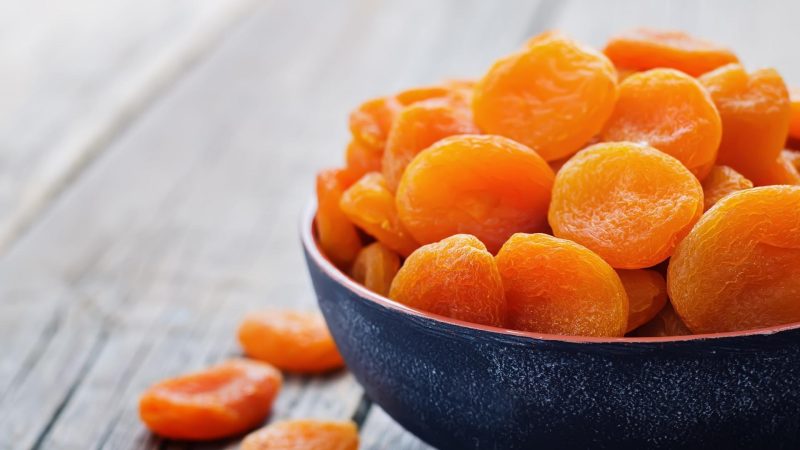
Fibers are good for bowels and digestion. But, too much of it is a bad thing. Excess fibers would upset the stomach of the cavy, and it will have tummy aches and/or loose stool.
This fruit also has a high amount of sugar; every dried fruit has lots of sugars. This happens because the fruit gets dehydrated and left with only dense nutrients and sugars, with less or almost no water. It damages the gut flora and causes tummy pains or gas, even diarrhea.
Lastly, the most serious risk is its calcium. This mineral, in excess, causes serious urinary problems for rodents. The cavy might get bladder or kidney stones. Its worst case scenario is the failure of urinary organs.
Serving and Frequency of Dried Apricots for Guinea Pigs
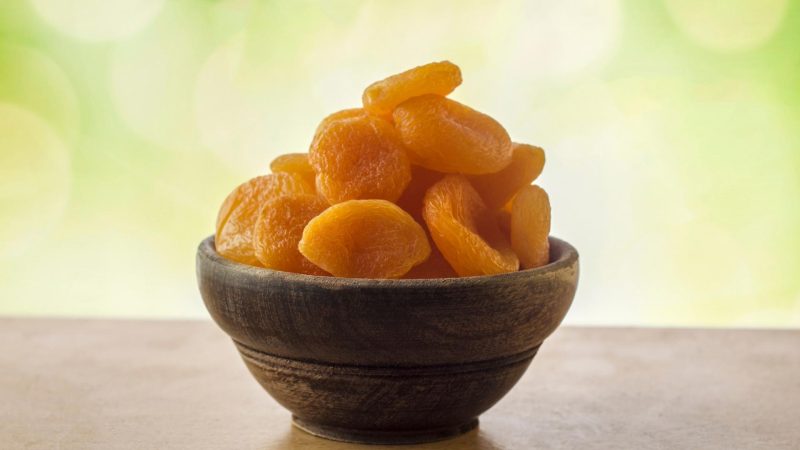
As a rule of thumb, it’s great to show some love to the cavy and give it tasty treats like this once in a while. So, a normal serving would be 1-2 small slices. Its normal frequency would be 2 times per week.
Quick Facts on Dried Apricots
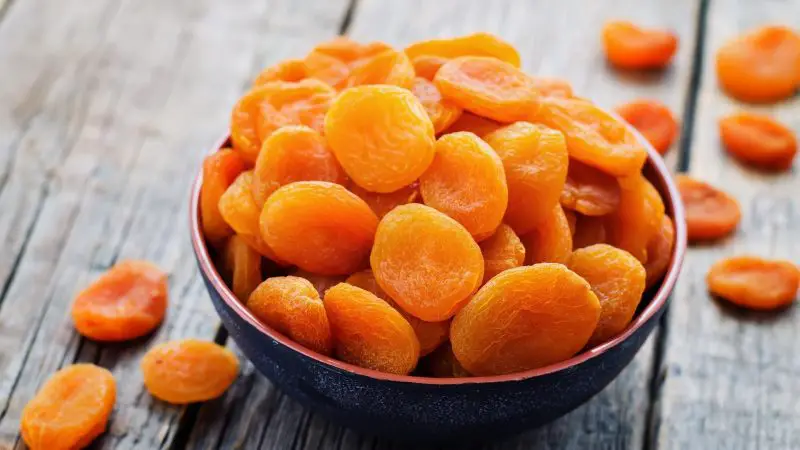
- Cavies can eat dried apricots, but they should be avoided.
- This fruit is very sweet and has lots of sugars. However, the amount of sugaes are bad for the stomach of cavies.
- There are carbs, proteins, fibers, vitamins, and minerals.
- The best benefit of dried apricots is that they have vitamin C.
- The biggest risk of dried apricots is the calcium that causes urinary problems in cavies if consume in large amounts.
We have also made a full list of foods that guinea pigs can and can’t eat (150+ Types of Foods). Be sure to also check our recommended products page for everything you will ever need to assure a happy life for your guinea pigs. Hope this information was helpful and you have found the answer you were looking for.
List of Sources
Vitamin C Requirements of the Guinea-Pig
Nutrient Requirements of Laboratory Animals: Fourth Revised
